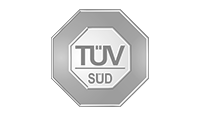Request a Demo
Trusted by leading brands, retailers, manufacturers and service providers across industries such as:
















Sustainable green supply chain has been receiving spotlights on the international stage. According to the United Nations, it is the management of environmental, social, and economic impacts, and the encouragement of good governance practices, throughout the life cycles of goods and services.
In the past few years, a lot of businesses around the world had begun to incorporate ethical and environmental responsibilities into their business strategies and everyday operations. While the trajectories of the supply chain are evolving, there are emergences of different green supply chain management (GSCM) solutions to help revolutionize the management of today’s global supply chains. The following will dive deeper into the benefits for businesses to adopt a sustainable green supply chain approach, examples of some pioneers in this field and how these green supply chain management strategies ease the headache of businesses during their journeys of going “green”.
To business owners, efficiency and productivity are the keys to growing a profitable business. For years, the majority of companies, particularly in the consumer product sector, are not paying adequate attention to the adverse social and environmental impacts posed by their suppliers. Most of the time, profitability outweighs sustainability. While it’s true that implementing green supply chain management (GSCM) could be costly in the initial stage, it will eventually benefit the companies in the long run.
In recent years, companies of different sizes are embarking on the journey towards a more sustainable supply chain. Not only does this trend alleviate the social and environmental risks, but such practice can also bring enormous benefits to businesses across industries, including economic returns and positive brand identity.
The following points are summarized with reference to publications published by EY named “The state of sustainable supply chains” in 2016 and ‘True Gen’: Generation Z and its implications for companies by McKinsey in 2018.
In the face of increasing scandals around the world concerning corporate ethics and corporate governance, many governments have responded with greater oversight of corporate activities. A lot of Multinational Corporates (MNCs) are striving to become the forerunner on the world stage by coming up with holistic sustainable strategies to comply with international principles and standards.
One of the essences of sustainable green supply chain management is to streamline business operations, such as better use of sustainable materials, ensuring a safe working environment, lean production, and quality management, etc. These approaches would result in cutting down unnecessary operational costs. By reducing costs, it also means increasing your ROI and revenue. In the long run, it translates into a higher valuation for businesses.
A sustainable green supply chain has many dimensions. Other than the environmental aspect, issues around fair labor practices, anti-corruption, and human rights are also of paramount importance in practicing sustainable green supply chain. By incorporating these ethical practices, companies can rule out investors’ concerns over these topics and ensure businesses are running with efficiency and transparency.
There is growing consumer support for the improvement of sustainability in global supply chains. Not only does sustainable green supply chain practices streamline business operations and improve the quality of your product, but it can also help with your customer acquisition. Adopting green supply chain management is a powerful way to construct a positive brand image and create a unique or at least favorable brand identity in response to your green initiatives. In doing so, businesses can enhance their brand reputation, hence gaining consumers’ trust and loyalty in the long run.
By implementing green supply chain management, companies are injecting new values and visions within the businesses. It can bring a positive impact to the company culture, where employees and managerial staff are more willing to innovate and explore different opportunities to develop new products and services revolving around sustainability.
GSCM can be defined as the incorporation of environment-friendly initiatives into every aspect of supply chain activities encompassing sourcing, product design and development, manufacturing, transportation, packaging, storage, retrieval, disposal, and post-sales services including end-of-product life management.
Great strides have been made by Multinational Corporations (MNCs) and governments around the world to further delve into how to operate their businesses more sustainably.
Kering, the international luxury group, was ranked as the world’s most sustainable textile, apparel and luxury goods corporation in Corporate Knights’ 2018 Global 100. The group has also moved up 45 places in the overall ranking the following year, ranking as the world’s second most sustainable corporation in the 2019 Global 100. Kering’s sustainability strategy includes a set of Kering Standards for raw materials and manufacturing processes as well as guidelines for achieving traceability in their supply chain, social compliance, environmental protection, animal welfare and chemical use. According to an interview by Forbes with Corporate Knights’ co-founder and president, Toby Heaps, the brand sources more than 40% of its products from certified sustainable sources and over 60% of the company’s board of directors are women, significantly exceeding the average gender ratio in most large corporations.
Laureated in the UN’s Champions of the Earth awards for its entrepreneurial vision in 2019 is clothing and gear brand, Patagonia. The US apparel brand is well-known for its sustainable supply chains and advocacy for the environment. Currently, nearly 70% of the brand’s products are made from recycled materials, the cotton used in their products are also organic, certified and grown in regenerative practices. Patagonia’s commitment to making sure products are produced under safe, fair, legal and humane working conditions throughout their supply chain also makes up a significant part of their sustainable supply chain management strategy. The brand works with factories that have demonstrated satisfying environmental and human rights records. Patagonia’s Worn Wear initiative encourages consumers to extend the life of their products by recycling and repairing.
Fairphone has changed the games launching a movement for fairer electronics in 2013. The Fairphone is aptly-named with the use of fair materials such as fairtrade certified gold and their continuous work to improve the working conditions of factory employees. It means much more to the consumer than simply getting a new phone when they choose to make a purchase, he or she is also supporting socially and environmentally responsible practices, as their campaign states, “the phone that cared for people & planet”.
Germany-founded sportswear giant Adidas’ sustainable supply chain initiatives are cutting back on energy and water consumption. The brand introduced DryDye technology to their polyester dyeing process that uses no water, 50% fewer chemicals and 50% less energy than traditional methods already in 2012. In some of their product lines, the dyeing step is even skipped by using materials in their natural colors. In 2019, Adidas revealed their first 100% recyclable high-performance running shoesー FUTURECRAFT.LOOP. The project aims at tackling plastic waste by enabling a circular or closed-loop manufacturing model. These running shoes are made to be remade, using only one single materialー 100% recyclable TPU, and no glue. Once the shoes have worn out, consumers can return them to Adidas where they will be ground up and remade into a new pair.
Digital transformation and sustainable green supply chain management come hand in hand. Digital and data-driven solutions are the future of GSCM. By incorporating a digital and data-driven solution and framework, it allows businesses to plan, execute and review their green supply chain strategies with high transparency.
The Topo Platform helps businesses ensure international standards and compliances are met through facilitating environmental and social audits at factories. Topo’s solutions help achieve full data transparency and traceability by connecting all stakeholders in your supply chain. Topo’s digital and mobile solutions allow various parties within the supply chain to collect, share and analyze data from, e.g. social or environmental factory audits, water testing, air testing, and chemical management in factories, track & trace of raw materials or chemical lab tests in a centralized platform. The data obtained can serve as a valuable asset to the company since they are now equipped with information the organization needs to make better decisions and develop more cost-efficient processes. It is also information that consumers are demanding, which can be utilized to build brand loyalty and identity. Our ability to cover the entire supply chain enables tracking and tracing of raw materials from source to finished good, reaching beyond your Tier 1 suppliers to Tier 2 or Tier 3 suppliers.
With the help of alerts and reminders, clients can better oversee the progress of their supply chains and make time-sensitive decisions while drafting corrective action plans. After identifying potential risk with the help of Topo’s centralized data and analytics platform, clients can take preventive measures at early stages to mitigate the losses in advance.
Topo Solutions offers flexible and customizable digital solutions for businesses to facilitate their green initiatives.
If you want to know more about how can Topo Solutions transform your supply chains, check out https://topo.cc/ or email us at hello@topo.cc.